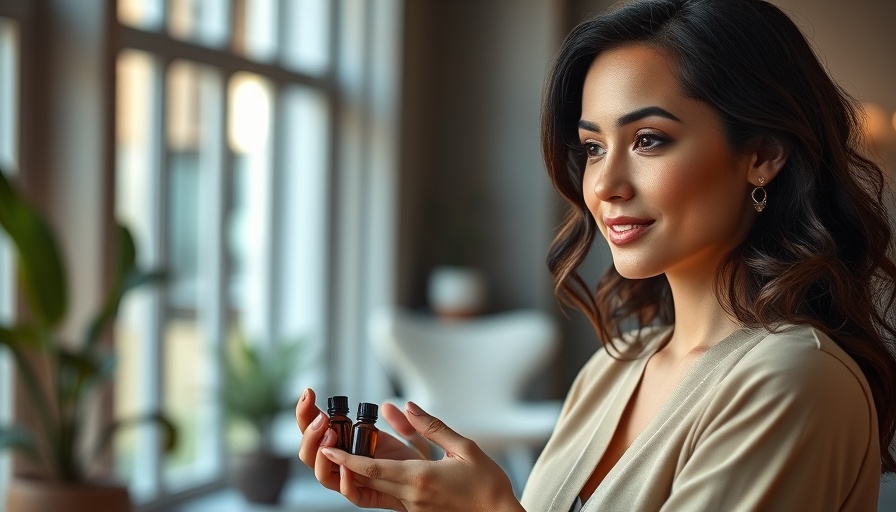
Understanding the Calming Power of Essential Oils
In a world rife with anxiety and stress, the quest for effective, holistic treatments has surged, turning increasing attention to alternative therapies such as aromatherapy. Among these, essential oils have emerged as popular aids for mental wellness. The use of essential oils like lavender, rosemary, and jasmine has been spotlighted for their therapeutic properties, particularly in managing anxiety and promoting relaxation.
In 'Top 3 Essential Oils for Anxiety & Calm,' Dr. Judith Joseph discusses effective oils for calming anxiety, inspiring us to delve into the therapeutic benefits and broader implications of aromatherapy in mental health.
Lavender: The Classic Calming Agent
Lavender essential oil is perhaps the most widely recognized aromatherapy oil for anxiety relief. Research supports its effectiveness in calming the mind and reducing symptoms associated with anxiety disorders. The scent of lavender has been shown to activate the parasympathetic nervous system, responsible for relaxation and calm. As healthcare professionals increasingly advocate for integrative treatment approaches, lavender keeps making its mark. For those in high-stress professions or dealing with mental health conditions, incorporating lavender into daily routines can significantly reduce feelings of anxiety.
Rosemary: A Surprising Ally in Stress Reduction
Rosemary essential oil may not be the first scent one associates with calmness, yet it has astonishing properties that contribute to emotional well-being. Known for enhancing cognitive function and reducing mental fatigue, rosemary oil can play a vital role in combating issues related to mental health disorders, including depression and PTSD. As professionals seek to improve their mental fortitude, rosemary serves as both an energizing and calming scent, promoting focus while alleviating stress.
The Luxurious Calm of Jasmine Oil
Although jasmine is one of the more expensive essential oils, its efficacy in managing anxiety cannot be overstated. Studies indicate that jasmine oil possesses qualities that mitigate anxiety by promoting feelings of trust and comfort, paralleling the effects of traditional anti-anxiety medications. For clinicians treating clients with anxiety or mood disorders, understanding the potential benefits of jasmine oil can aid in therapy options and enhance overall treatment plans.
Incorporating Essential Oils into Mental Health Treatment
The integration of essential oils into therapeutic practices can serve as a complementary approach to traditional methods like Cognitive Behavioral Therapy (CBT) and medication. By utilizing oils like lavender, rosemary, and jasmine, mental health professionals can craft personalized wellness plans for their clients aimed at enhancing emotional resilience. These oils can be used in various settings—whether in the consulting room, for personal self-care rituals, or as part of stress management training in corporate environments.
The Evidence Behind Aromatherapy
A growing body of mental health research supports the psychological and physiological benefits of essential oils. Evidence suggests that aromatherapy not only helps alleviate symptoms of anxiety and depression but can also serve as a vital tool for mental health education among clients. Educating individuals on specific oils and their uses fosters empowerment in managing their own mental health.
Conclusion: Empower Your Mental Health Journey with Essential Oils
Understanding the impact of essential oils on mental health can transform self-care practices. Professionals in the mental wellness space should consider integrating aromatherapy into their treatment options, offering clients innovative tools for enhancing emotional regulation and promoting overall well-being. The exploration of these natural remedies cultivates an enriched narrative around mental health and challenges existing stigma. Embrace the calming potential of essential oils and advocate for holistic approaches in mental health treatment.
By utilizing these insights, mental health professionals can better support their clients on paths toward recovery and improved well-being. Explore therapies that resonate with you, whether they be conventional or alternative, and empower your journey to mental health.
 Add Row
Add Row  Add
Add 




Write A Comment